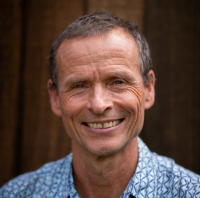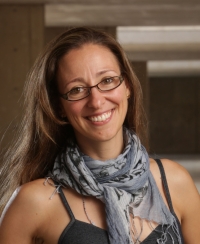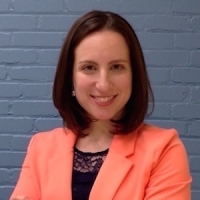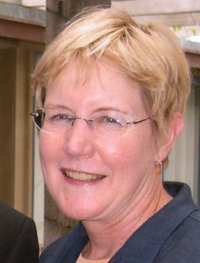Osher Master Class I: An Anthology of Anthropogeny
Biographical Sketches: Speakers
UC San Diego
Pascal Gagneux is CARTA's Executive Co-Director, a Professor of Pathology and Anthropology, and the Department Chair of Anthropology at UC San Diego. He is interested in the evolutionary mechanisms responsible for generating and maintaining primate molecular diversity. The Gagneux laboratory studies cell-surface molecules in closely related primates species. His focus is on glycans, the oligosaccharides attached to glycolipids and glycoproteins of the surfaces of every cell and also secreted into the extra-cellular matrix. Gagneux's laboratory is exploring the roles of molecular diversity in protecting populations from pathogens as well as potential consequences for reproductive compatibility. Dr. Gagneux’s interest is in how glycan evolution is shaped by constraints from endogenous biochemistry and exogenous, pathogen-mediated natural selection, but could also have consequences for sexual selection. Dr. Gagneux has studied the behavioral ecology of wild chimpanzees in the Taï Forest, Ivory Coast, population genetics of West African chimpanzees, and differences in sialic acid biology between humans and great apes with special consideration of their differing pathogen regimes. In 2011, while Associate Director of CARTA, Dr. Gagneux helped to establish a graduate specialization in Anthropogeny at UC San Diego. This wholly unique graduate specialization is offered through eight participating graduate programs in the social and natural sciences at UC San Diego.
Scripps Institution of Oceanography and University of Cambridge
Charles F. Kennel is distinguished professor, vice-chancellor, and director emeritus at the Scripps Institution of Oceanography at UC San Diego. He was educated in astronomy and astrophysics at Harvard and Princeton. He joined UCLA’s Department of Physics and its Institute for Geophysics and Planetary Physics where he pursued research and teaching in theoretical space plasma physics and astrophysics, eventually chairing the Physics Department. From 1994 to 1996, Kennel was Associate Administrator at NASA and leader of its Earth science satellite program. Kennel’s experiences at NASA influenced him to change into Earth science, and he became the ninth Director of Scripps Institution of Oceanography, serving from 1998 to 2006. During winter terms 2007, 2010, 2012, 2014, and 2015-2020, he was a Distinguished Visiting Scholar at Christ’s College, Cambridge.
University of California San Diego
Maria Carolina (Carol) Marchetto is an Assistant Professor at the Anthropology Department, UC San Diego, and serves on the CARTA Internal Advisory Board. Dr. Marchetto earned a BSc in Biological Sciences in 1998 and a Ph.D. in Microbiology in 2005 from the University of Sao Paulo, Brazil. Dr. Marchetto moved to San Diego in 2005 for her postdoctoral research in stem cells and neuroscience in the lab of Dr. Fred Gage at the Salk Institute. Prior to her appointment at UC San Diego, Dr. Marchetto was a Staff Scientist at the Laboratory of Genetics at The Salk Institute where she led projects that studied neuronal development using human and nonhuman primate stem cells. Her current work focuses on using patient-derived induced pluripotent stem cells to study the cellular behavior of human neurons in neuropsychiatric and neurodevelopmental conditions such as Autism and Bipolar Disorder. Dr. Marchetto’s work is also focused on human evolution in the context of human brain expansion and neuronal development. Her innovative approach uses stem cell models from human and nonhuman primate species to test hypotheses about the role of disruptions to human-specific cellular and molecular signatures in development and their potential impact on mental health. She is a BRAINS Program Fellow, and her work has received funding from the National Institutes of Mental Health and the Larry L. Hillblom Foundation.
University of California, San Diego
Adena Schachner received her B.A. in Cognitive Science from Yale University, a Ph.D. in Psychology from Harvard University, and did post-doctoral research at Boston University before joining UC San Diego as an Assistant Professor of Psychology in 2016. In 2017, she received the Rising Star Award, recognizing outstanding early-career psychological scientists, from the Association for Psychological Science, and the Equity, Diversity, and Inclusions (EDI) Fellowship from the Center for Faculty Diversity and Equity at UC San Diego. Dr. Schachner's research explores how children and adults reason about the social world, with a particular focus on links between music and social cognition. How do we use mental states (like intentions, goals and preferences) to explain others’ actions, and to understand the artifacts that people own and create? She employ a variety of experimental methodologies, including looking time with infants, computational modeling, and behavioral methods with children and adults, both in the lab and around the world via the internet.
UC San Diego
Margaret Schoeninger is Distinguished Professor Emerita of Anthropology at UC San Diego, a Research Archaeologist in the Glenn Black Laboratory of Archaeology at Indiana University, and Emerita Co-Director of CARTA. She has done fieldwork in North America, Mexico, Pakistan, India, Kenya, and Tanzania as well as laboratory research on carbon, nitrogen, and oxygen stable isotope ratio analysis in biological tissues and food component analysis of traditional foods. Her major interest is in the evolution of human diet particularly as it informs our understanding of the appearance and evolution of the human lineage.






